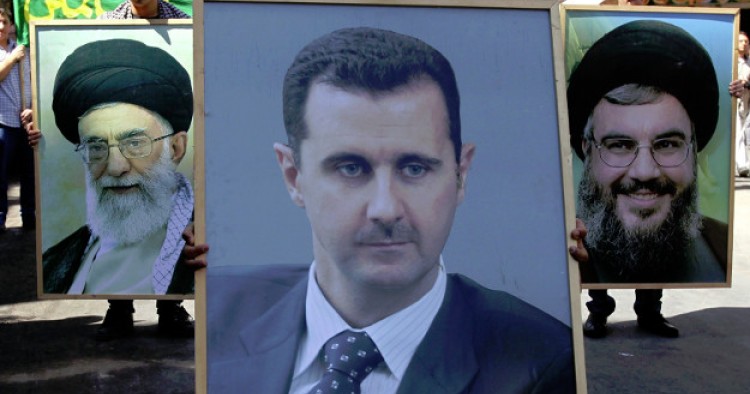The Iran-Syria Friendship Popular Committee on Friday organized a ceremony in the Syrian city of Aleppo to commemorate the anniversary of Iran’s 1979 revolution “in a show of solidarity with Iran.” Political, religious and cultural leaders of the two countries attended the event. Syrian participants reportedly commended Iran’s Islamic revolution and thanked Tehran for its support to the embattled regime of Bashar al-Assad in the past six years. Speaking to the audience, Iran’s cultural attaché in Syria, Mostafa Ranjbar, said the Islamic Revolution did not belong to Iran alone, but it had impacted the whole region – citing specifically the recent “liberation” of Aleppo and Iran’s anti-Israel stance over the past 38 years.
Similar events were also held in other Syrian cities. In Latakia, the Islamic Culture and Relations Organization (ICRO), the Cultural Center of the Islamic Republic of Iran, and the Association of Iran-Palestine Friendship in Syria jointly organized an event entitled “The 38th Anniversary of Support of Iran’s Islamic Revolution for Palestine against Zionism.”
The Iranian Embassy in Damascus, too, held a ceremony that was attended by senior Syrian regime officials, including Prime Minister Imad Khamis, Parliamentary Speaker Hadiyeh al-Abbas and several cabinet ministers. According to the Iranian media, several foreign diplomats and Palestinian leaders also attended the event. (More details here.)
Comment: While Iran’s direct military role and arms support to its regional proxies often make headlines, Iran’s soft power efforts aimed at promoting the country’s ideological and political goals in the region are largely overlooked. The high-profile celebrations of Iran’s Islamic Revolution across Syria – organized by Iranian government entities or Iranian-funded cultural and religious organizations – are one illustrative example of how the Islamic Republic uses soft power tools to expand its ideological, cultural and political spheres of influence across the Middle East.
Tehran has established cultural and religious centers in many regional countries to expand its soft power influence and complement its hard power activities as well. In Lebanon, for example, Iran established the Cultural Center of the Islamic Republic of Iran in Beirut in 1987 to elevate Hezbollah’s popularity and depict Iran as the “Vatican of Shiism among Lebanese people.” The center supervises a chain of Iranian-funded schools, universities and religious seminaries mostly in Shiite-dominated areas. It also coordinates with Iranian state media to promote Tehran’s propaganda in Lebanon.
Moreover, Iranian charity and cultural organizations often provide a civilian cover for Islamic Revolution Guards Corps (I.R.G.C.) and its secretive Quds Force operatives to carry out subversive activities at the expense of regional stability. Iran’s cultural center in Lebanon, for example, works in close partnership with Hezbollah’s cultural department to implement joint projects and raise funds for Hezbollah inside Iran. The Imam Khomeini Relief Committee, ostensibly a charity organization, functions to promote Tehran’s ideological and political goals in the region and helps the I.R.G.C.’s efforts in Afghanistan, Lebanon and beyond.
The Middle East Institute (MEI) is an independent, non-partisan, non-for-profit, educational organization. It does not engage in advocacy and its scholars’ opinions are their own. MEI welcomes financial donations, but retains sole editorial control over its work and its publications reflect only the authors’ views. For a listing of MEI donors, please click here.













